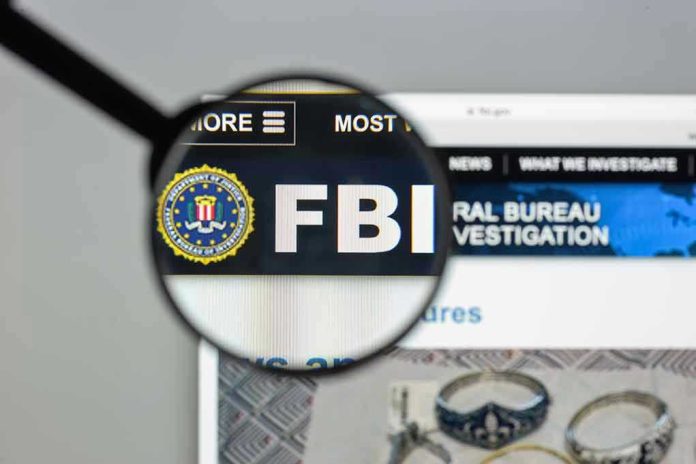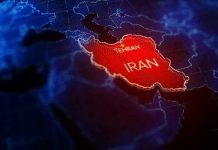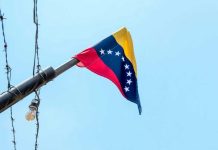
In a fiery clash with the FBI, Tucker Carlson claims the agency is hiding the truth about a ‘right-wing’ Trump shooter, sparking a high-stakes debate over transparency.
Story Snapshot
- Tucker Carlson accuses the FBI of concealing information about Trump shooter Thomas Crooks.
- Carlson alleges FBI misrepresented Crooks’ online activity and motivations.
- The FBI and Director Kash Patel refute these claims, defending their investigation.
- This controversy highlights issues of transparency and investigative integrity.
Allegations Against the FBI
Tucker Carlson, a prominent conservative commentator, has taken the FBI to task over its investigation into Thomas Crooks, who attempted to assassinate Donald Trump during a campaign rally in Butler, Pennsylvania, on July 13, 2025. Carlson alleges that the FBI, under Director Kash Patel, has deliberately misrepresented Crooks’ online activity, suggesting a cover-up to downplay Crooks’ digital footprint, which includes violent threats and political motivations. This accusation has ignited a public dispute over the agency’s transparency and investigative practices.
The FBI, in response, has denied Carlson’s claims, asserting that their investigation was thorough and transparent. The agency insists it never stated Crooks had no online presence, and has detailed the comprehensive analysis conducted on multiple digital accounts and devices. Despite these assurances, Carlson’s allegations have resonated with a segment of the public already skeptical of federal institutions, fueling a contentious dialogue about government accountability and media influence.
The Shooting Incident and Investigation
The attempted assassination of Donald Trump was a shocking event that drew immediate scrutiny to law enforcement and security agencies. On July 13, 2025, Thomas Crooks opened fire at a Trump campaign rally, injuring Trump and killing one attendee. Crooks was subsequently killed by Secret Service agents. In the aftermath, the FBI launched an investigation, focusing on Crooks’ digital footprint and possible motivations. Early public statements suggested Crooks had limited online presence, a claim now challenged by Carlson’s investigation.
Tucker Carlson claims Patel’s FBI ‘doesn’t want us to know’ truth about ‘right-wing’ Trump shooter Crooks #FBI #DonaldTrump #TuckerCarlsonhttps://t.co/lIVO03Ax1n
— nick borynack (@NickBorynack) November 15, 2025
Carlson has presented alleged evidence of Crooks’ violent online posts, contradicting the FBI’s initial statements. This revelation has spurred questions about the scope and transparency of the FBI’s investigation, with Carlson asserting that the agency is concealing critical information about Crooks’ political motivations and potential online threats. The FBI, however, maintains that Crooks acted alone and that all relevant digital evidence was thoroughly examined.
The Role of the Media and Public Perception
Tucker Carlson’s involvement in this controversy underscores the significant influence media figures can wield in shaping public opinion. Carlson’s claims have intensified scrutiny on the FBI, highlighting broader issues of transparency and accountability within federal institutions. His allegations have resonated with those who harbor distrust towards government agencies, further polarizing public discourse.
Carlson’s investigation and media presence have reignited debates over the role of media in holding government agencies accountable. While some view his efforts as a necessary challenge to institutional power, others criticize him for potentially undermining public trust in law enforcement. This clash between a major media figure and a federal agency exemplifies the complex dynamics between media, government, and public perception.
The Broader Implications
The controversy surrounding the FBI’s investigation into Thomas Crooks has significant implications for law enforcement and political discourse in the United States. In the short term, it has heightened public distrust in federal agencies and increased scrutiny of security protocols at political events. Long-term consequences may include potential reforms in investigative transparency, digital evidence handling, and event security standards.
The incident has also intensified political polarization, as competing narratives about the FBI’s conduct continue to circulate in media and public discourse. This polarization could influence legislative or procedural changes in federal investigations and event security, as well as shape future interactions between media figures and government agencies. Ultimately, the ongoing debate underscores the need for clear, consistent communication from investigative bodies to maintain public trust and uphold democratic principles.









